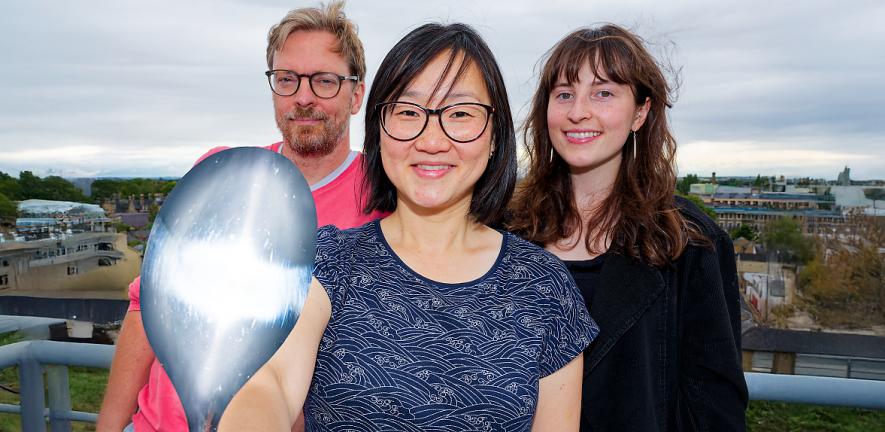
Coordinated by Dr Jenny Zhang, whose research focuses on biohybrid approaches for energy conversion, with Prof. Erwin Reisner as Co-Investigator and Dr Rachael Egan as postdoctoral researcher, this marks the first time Cambridge has served as lead partner on an EIC collaborative grant – an exciting milestone in the University’s global research impact.
The project brings together a top-tier European consortium including the Technical University of Denmark (DTU) led by Prof. Stephan Sylvest Keller with Prof. Jenny Emnéus; the Technical University of Munich (TUM) led by Prof. Nicolas Plumeré with Prof. Magnus Fröhling; Imperial College London led by Prof. Rodrigo Ledesma Amaro with Prof. Sonja Billibeck and the food technology innovator Solar Foods led by Dr Juha-Pekka Pitkänen. Together, the team is setting out to tackle one of humanity’s greatest challenges: how to produce food sustainably without traditional agriculture.
The team aims to design a solar-powered device that combines photosynthetic bacteria with food-producing microbes to convert carbon dioxide (CO₂) and nitrogen (N₂) from the air into essential nutrients like proteins and fats – eliminating the need for traditional farming. If successful, this would be the first functional prototype to achieve at least one per cent solar-to-food conversion efficiency. Such a device could revolutionise sustainable food production, not only in remote or resource-scarce regions on earth but also for future space missions.
Key innovations driving the project:
• Electron transfer efficiency: enhancing the interface between bacteria and electrodes to allow efficient energy conversion.
• Microbial synergy: engineering microbial systems that can reliably produce both proteins and lipids.
• Device integration: building a self-contained, efficient system that unites biological and electrical components for direct nutrient harvesting.
Division of expertise:
• Cambridge will lead the development of the anode, using cyanobacteria to extract electrons from water via photosynthesis.
• TUM is responsible for the cathode, focusing on hydrogen production technologies.
• Solar Foods will build on TUM’s work to convert hydrogen into proteins using proprietary microbial processes.
• Imperial will create new microbes to convert hydrogen into oils (lipids), collaborating closely with TUM.
• DTU and Cambridge will co-develop novel electrode materials and design the overall integrated system to bring all components into a cohesive stand-alone unit.
Dr Zhang states: “This is an extraordinary opportunity to rethink what solar can do and how food can be produced.”

